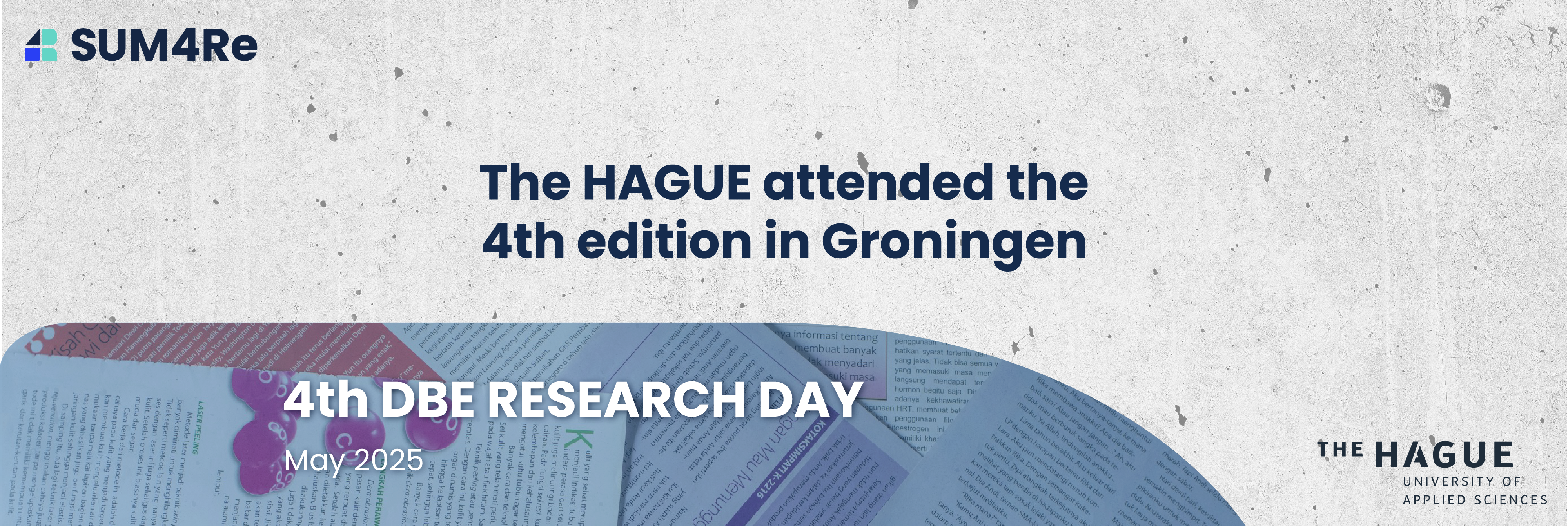The fourth annual Research Day on Digitalisation in the Built Environment brought together leading minds from the four Dutch technical universities (4TU) and fourteen universities of applied sciences (14UAS), united under the national platform NL-GO. Hosted this year by Hanze University of Applied Sciences Groningen and the University of Groningen, the event showcased the latest research, demos, and collaborations accelerating the sustainable transformation of our cities and infrastructure.
The Hague University of Applied Sciences (THUAS) stood out with contributions from its Future Urban Systems research group. Rizal Sebastian, professor and moderator at the event, emphasized how digitalization can drive sustainable and inclusive urban development, highlighting the importance of integrating technology to address challenges such as climate adaptation and circular construction. His vision centers on using digital tools not just for efficiency, but to enhance the quality of life and foster collaboration among academia, industry, and citizens.
Daniëlle Strydom, also from THUAS, presented her research on digital data acquisition in circular construction projects (page 100). Her work focuses on leveraging Building Information Modeling (BIM) and digital innovations to support the realization of climate-neutral cities, demonstrating how data-driven approaches can accelerate the transition to more sustainable building practices.
Together, Rizal and Daniëlle showcased THUAS’s commitment to bridging research and practice, using digitalisation as a catalyst for both environmental sustainability and social inclusion in the built environment.

